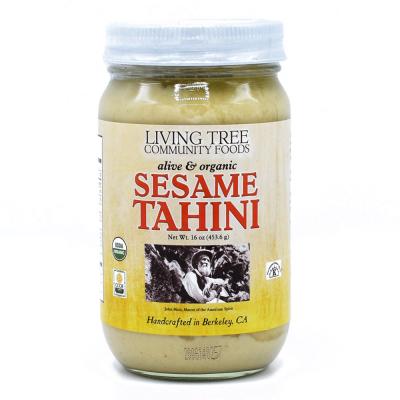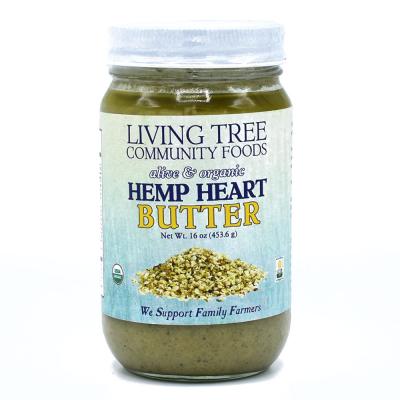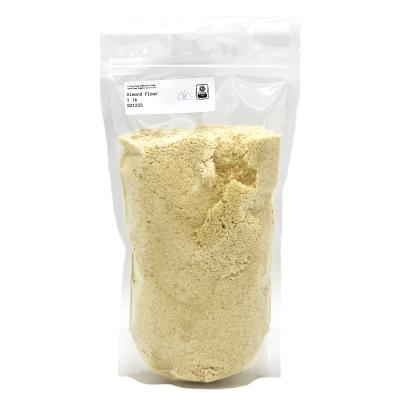Why do you use the word “alive” and not “raw”?
We use the word “alive” because in an increasingly mechanistic world it behooves us to assert aliveness. The mass extinction of species, the epidemic of suicides and deaths of despair, the epidemics of type II diabetes, heart disease and cancer behoove us to proclaim our faith in the triumph of life.
We were in the raw food movement almost from its inception. We went to gatherings,international symposia, lectures and talks. “Raw” food came to us naturally and we have been following a raw food diet, more or less, for decades. It has made every difference to our overall level of health and well-being and that of many others.
But for us the confines of “raw” are too narrow and restrictive. Aliveness emanates from the wellspring of our being and we are bidden to rejoice in bubbling, streaming, effervescent aliveness.
Are your almonds irradiated or fumigated?
No. Our almonds are certified organic, which is only available to products that have not been exposed to ionizing radiation or chemical fumigants.
Please visit our almond page for a description of how our almonds are processed.
My child is extremely allergic to peanuts. Are your nut butters free from peanuts?
We do not sell peanuts. We do not make peanut butter. There are no peanuts on our premises.
Are your products and facility gluten free?
We do not use any gluten or gluten products in any of our items or at our facility. However, our ingredients come from a variety of farms and vendors, and we do not track possible gluten presence in our suppliers.
Which of your products are kosher certified?
Our product directory has a column that marks which of our products are kosher certified. Please check out product directory here.
How much will shipping cost?
When you place an order, the shopping cart will estimate shipping cost before check-out.
Who does your kosher supervision?
Sunrise Kosher; Vaad Hakashrus of Northern California. Rabbi Levy I. Zerkind is the Rabbinic administrator and Rabbi Ben Tzion Welton is the supervision coordinator. We invite you to visit their website.
Which items have the longest shelf life?
Dried bananas, coconut butter, coconut oil, vanilla powder, sesame seeds and cranberries. Our honey will keep for 4000 years, in case you were wondering.
What about genetic modification?
Genetically modified food cannot be certified as ‘Organic’.
How long will the almonds keep?
Our almonds should be kept refrigerated. Freezing is recommended if you plan to keep them for more than six months. Why not refrigerate some and freeze the rest?
Are your almonds sprouted before slicing into butter?
We do not sprout our almonds. We have never been able to understand the point of sprouting an almond and then dehydrating it and turning the deyhydrated nut into butter.
On the other hand, we heartily applaud those who sprout almonds and make them into almond milk or grind them into butter in the comfort of their own kitchen.
How hot does the machine get during the process of grinding almond?
We make our raw almond butter in small batches at our plant here in Berkeley. Our process is unique to Living Tree Community Foods. The machine gets warm during the grinding process, so we slice them, let we rest the nuts overnight and then slice them again the next day, so the least heat possible touches the nuts to keep their raw flavor and health benefits intact.
Why do some of your products contain honey?
We use honey instead of sugar because it is alive, and sugar is not. Please note that many of our products do not contain honey including almond, walnut, cashew, pecan, macadamia and pumpkin seed butters as well as our tahinis and pestos.
Are your fruits sulfured?
Sulfured fruits cannot be certified as “organic”.
At what temperature is your fruit dried?
Our apricots, peaches, and dates are sundried. Figs are sundried, refrigerated and then put in a warm water bath. Bananas are dried at 120 degrees Fahrenheit for 24 hours. Macadamias are dried at 100 degrees Fahrenheit (to 1.5% moisture)
What is the best way to keep dried fruits and nuts?
Refrigerate them. If you intend to keep for more than 6 months, we recommend that you freeze them. A good strategy is to refrigerate some and freeze the remainder.
I notice your nut butters are kosher certified. What does that mean?
In the case of a nut butter, olives or olive oil, kosher certification means that a Rabbi or an observant Jew has supervised our production process to make sure that our products do not contain animal products. For example, in the case of our roasted almond butter the oven is checked to make sure it is not being used to roast meat. The trays on which the almonds are placed are checked to make sure they have not been greased with animal fat. Furthermore, animal fat has not been used to grease the machinery.
Kosher certification is based upon this unique perspective:
It is the task of the Jewish people to get on with the work that was assigned to the Patriarch Abraham:-
...and you shall be a blessing.. .and all the families of the earth shall bless themselves by you. Genesis 12:2-3 and to the Patriarch Jacob ...and all the families of the earth shall bless themselves by you and your offspring. (Genesis 28:14) Count Leon Tolstoy, the author ofWar and Peace, was not a Jew, yet he spoke knowingly and profoundly when he said, The Jew is that sacred being, who has brought down from Heaven the everlasting fire, and has illumined with it the entire world. He is the religious source, spring, and fountain out of which all the rest of the peoples have drawn their beliefs and their religions. As servants of the Eternal and as a blessing to humankind, Jews need to avoid eating foods which decrease spiritual sensitivity and awareness. This does not mean that a Jew is forbidden animal products in general, rather a Jew is permitted to eat only relatively few animals-such as the cow, the goat and the sheep. Furthermore, these must be slaughtered in a way that will not cause suffering to the animal. This is in accord with a tradition going back thousands of years. The topic of Kosher food is very broad. If you want to learn more may we suggest you open your Bible to Leviticus 11:1-11:47 and Deuteronomy 14:2-21.
Do you have a Fair Trade program?
Our fair trade program consists of working with California family farmers whenever possible. In some cases we have working relationships with farmers going back for decades. They grow our almonds, pistachios, walnuts, peaches, apricots, medjool and halawi dates. Further afield our pumpkin seeds and hazelnuts come from Oregon and our golden flax seeds come from the midwest. Whenever possible we buy American.
Are your cashews raw? Is your cashew butter really raw?
We offer sundried, organic cashews from Indonesia. We also offer organic cashew pieces that are minimally heated. Also, we offer organic, whole cashews that have been conventionally processed, using heat to remove them from their caustic husks, but they are not roasted.
Here’s a fascinating insight from Habib Bailey, a leader in the raw food movement when it was in its infancy:- I imagine that many of you raw folks have been told that all cashews are not truly raw, because they’ve been heated in the shell before being opened. Well, I’m here to give you some news that will be very well received by everyone who loves the rich, creamy consistency that cashews bring to many delicious raw recipes.
A long time ago, I also heard that cashews are heated in the shells. I did find out that it is true. But rather than simply leaving it at that, and never eating them again, I reasoned that whether they were truly raw or not depended on whether or not enough heat made it through the shell, to actually alter the nuts themselves. You see,the reason they are heated, is that there is a caustic substance coating the inside of the shell, that will burn the hands of those who open them for processing. They are briefly heated in order to disperse this natural, caustic agent. I heard that the heating didn’t need to be very long, in order to accomplish this. This is what caused me to begin questioning how much heat actually made it through the shell, and whether it was of sufficient duration to actually
alter the nut.
So I devised an experiment:
I began making nut cheeses from all different kinds of nuts I could find, using a very simple recipe I have devised to make a cultured nut cheese. Whenever I tried a particular nut cheese, I would make two versions: one batch I would make from nuts labelled “raw” and the other batch I would make from nuts that were NOT labelled raw. For each kind of nut, I gave it several tries, to see if my results were the same each time. And guess what? My results were ALWAYS the same…
The results….
Nut cheeses made from raw nuts virtually always came out right. They tasted good, and had the kind of “pleasantly sharp” taste you get from the growth of healthful, beneficial bacteria. Similar to the kind that grows in good, live sauerkraut.
On the other hand, the nut cheeses made from nuts which were NOT labelled as raw, ALWAYS ended up spoiling. There was in every single case, a bad smell, and a bad taste. They were full of putrefactive bacteria, and had to be thrown away.
NOW FOR THE CLINCHER: If you make the same conclusion from these results that I did, you would also reason that if a nut cultured properly, then it MUST have been raw….
Well, I will tell you: every single batch of cashew cheese that I have ever made from cashews that were labelled as raw, ALWAYS cultured properly, and came out tasting and smelling very, very good… with no putrefactive odor or taste at all. In fact, whenever I have given samples of this cheese to people who haven’t tasted it before, their eyes widen, and they have to have the recipe…
AND just like all the other kinds of nuts tested, every batch of cashew cheese made from cashews NOT labelled as raw, ALWAYS SPOILED.
So the only possibility that makes sense to me, is that although cashews are most definitely heated in the shells, that not enough heat makes it through the shell, and not for a sufficient duration, to detrimentally alter the cashew nut itself.
I have shared the story of my “experiment” and conclusions with many raw food teachers. Usually they are very glad to hear of it, because the cashew is an extremely versatile, tasty nut.





